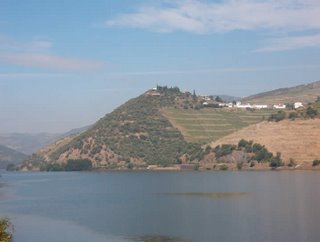
As I’ve mentioned already, I’m off to the Douro later today. It’s an exciting region. Think about Côte-Rôtie: a great hillside ‘terroir’. But there isn’t much of it: just a couple of hundred hectares. And they’re not making any more of it. In the Douro, there are thousands of hectares. Yes, folks, the Douro is massive, with many of the vineyards planted on the steep banks of the river and its tributaries. Altogether the three subzones, Baixo Corgo, Cima Corgo and Douro Superior, have 40 000 hectares of vines.
Until recently, though, virtually no serious table wine was being made here. This was a historical artefact – the Douro was devoted to Port production. Things have changed, for a variety of reasons described
here. Now there are more than a dozen serious producers of table wine, and this is a number growing all the time. From what I’ve tasted of the 2004s, this looks like being a landmark vintage for the Douro. Across the board, there is now a critical mass of serious Douro wine such that the world – and not just Portuguese wine geeks like me – will have to admit there’s something going on here.
Is there an emerging Douro style? I think it’s still too soon to say. I would disagree with those who think that the best Port vineyards are also going to be the best for table wines. I know style is to an extent a personal choice. It’s a little presumptious of me to think I can tell wine producers what sorts of styles to aim at, but for what it’s worth, here’s my opinion.
I think the Douro will have missed an opportunity if producers aim to make big, very ripe, alcoholic ‘international’-style red wines, bolstered by new oak, and which have at best a five year drinking window. I think they are better off aiming for a style that champions elegance and ageworthiness over extraction and sweet, dead fruit (from very late picking). Yes, the Douro is a warm region and the wines from here will be powerful.
There’s nothing wrong with power, but as some of the best Douro reds have shown, power can be coupled with restraint and even elegance. Some winemaking styles obliterate terroir; the Douro should aim at letting the varied terroirs express themselves (whatever this means). Another thought: I think blending will be important, just as it has been with the Port trade. Single vineyards may not be the way to go. If you have several vineyards, with different aspects and altitudes, to choose from, the possibility of making use of terroir to assist blending a more complete wine becomes a possibility. The potential is there for the Douro to emerge as one of the great, classic table wine regions, and this needn’t happen at the expense of Port.
But to achieve this it has to do more than simply offer another batch of big, ripe, new world-style reds that could have come from just about anywhere. The Douro has a good story; now it needs to make use of the limited window of opportunity that is now open – you only get one chance to tell your story to the world, so tell it well by making distinctive, serious, thought-provoking wines. Just some thoughts, that’s all.
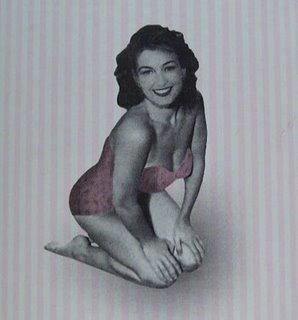 'I have been fortunate to secure fruit from 140 year old vines in perhaps the best vintage on record', says winemaker Tim Burvill. 'What an irresistable opportunity!' The result is the Rockbare Barossa Babe Shiraz 2002, which at an RRP of £14.99 is actually fantastic value for money. It's a dark, intense wine with the oak providing spicy structure to the ripe, pure, sweet black fruits. There's plenty of complexity here, though, and with time the oak seems to merge seamlessly into the entirity of the wine, as if swallowed by its dark, intense core. The 15.5% alcohol is noticeable (how do you hide this?) but in the context of the wine it is almost hidden. This is the traditional Barossa style at its best, and if you are in the mood for it, it's great. (UK agent Boutinot. Availability Andrew Chapman www.surf4wine.co.uk; D Byrne; Bacchanalia.)
'I have been fortunate to secure fruit from 140 year old vines in perhaps the best vintage on record', says winemaker Tim Burvill. 'What an irresistable opportunity!' The result is the Rockbare Barossa Babe Shiraz 2002, which at an RRP of £14.99 is actually fantastic value for money. It's a dark, intense wine with the oak providing spicy structure to the ripe, pure, sweet black fruits. There's plenty of complexity here, though, and with time the oak seems to merge seamlessly into the entirity of the wine, as if swallowed by its dark, intense core. The 15.5% alcohol is noticeable (how do you hide this?) but in the context of the wine it is almost hidden. This is the traditional Barossa style at its best, and if you are in the mood for it, it's great. (UK agent Boutinot. Availability Andrew Chapman www.surf4wine.co.uk; D Byrne; Bacchanalia.)
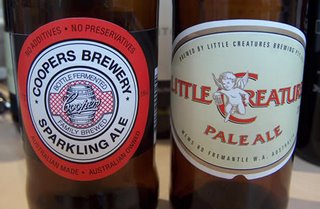
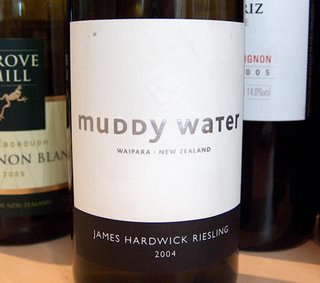
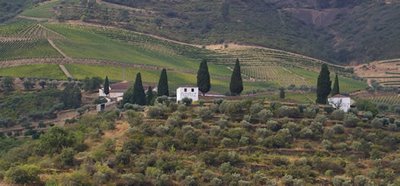
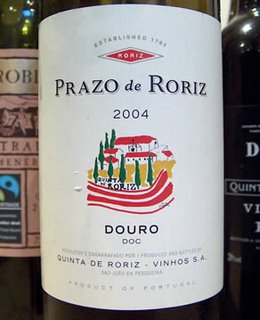
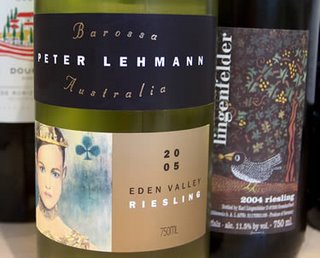
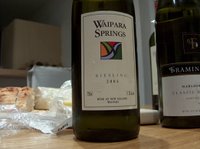
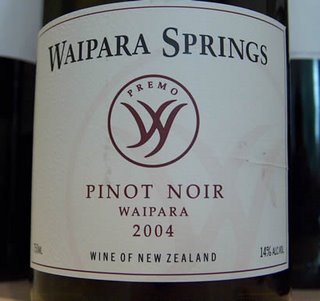

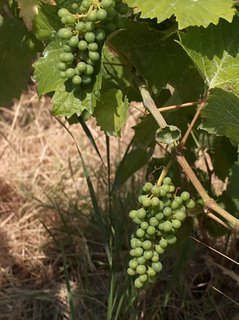
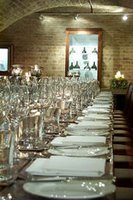
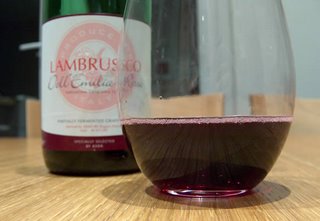



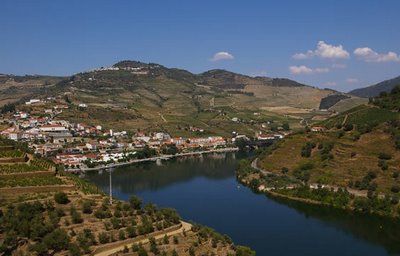


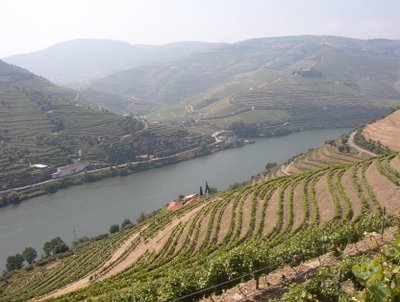
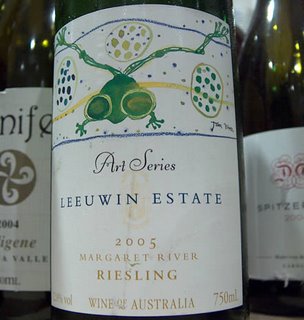
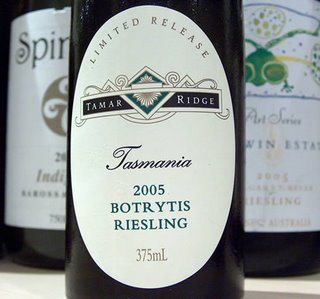
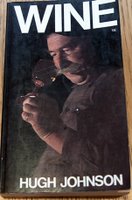
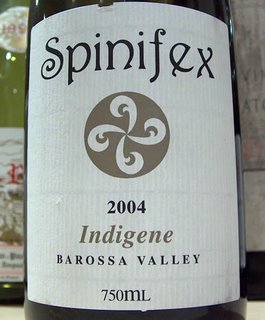

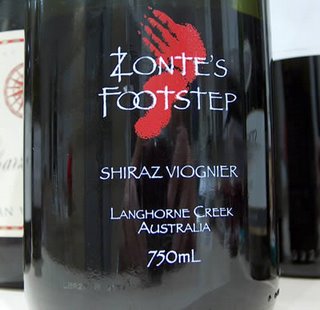
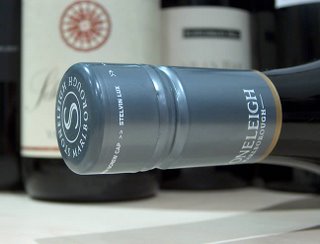
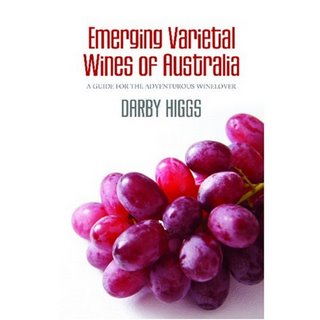


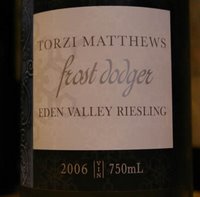
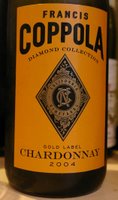
 The web log of wine journalist Jamie Goode. Feel free to nose around; your comments are welcome
The web log of wine journalist Jamie Goode. Feel free to nose around; your comments are welcome 
